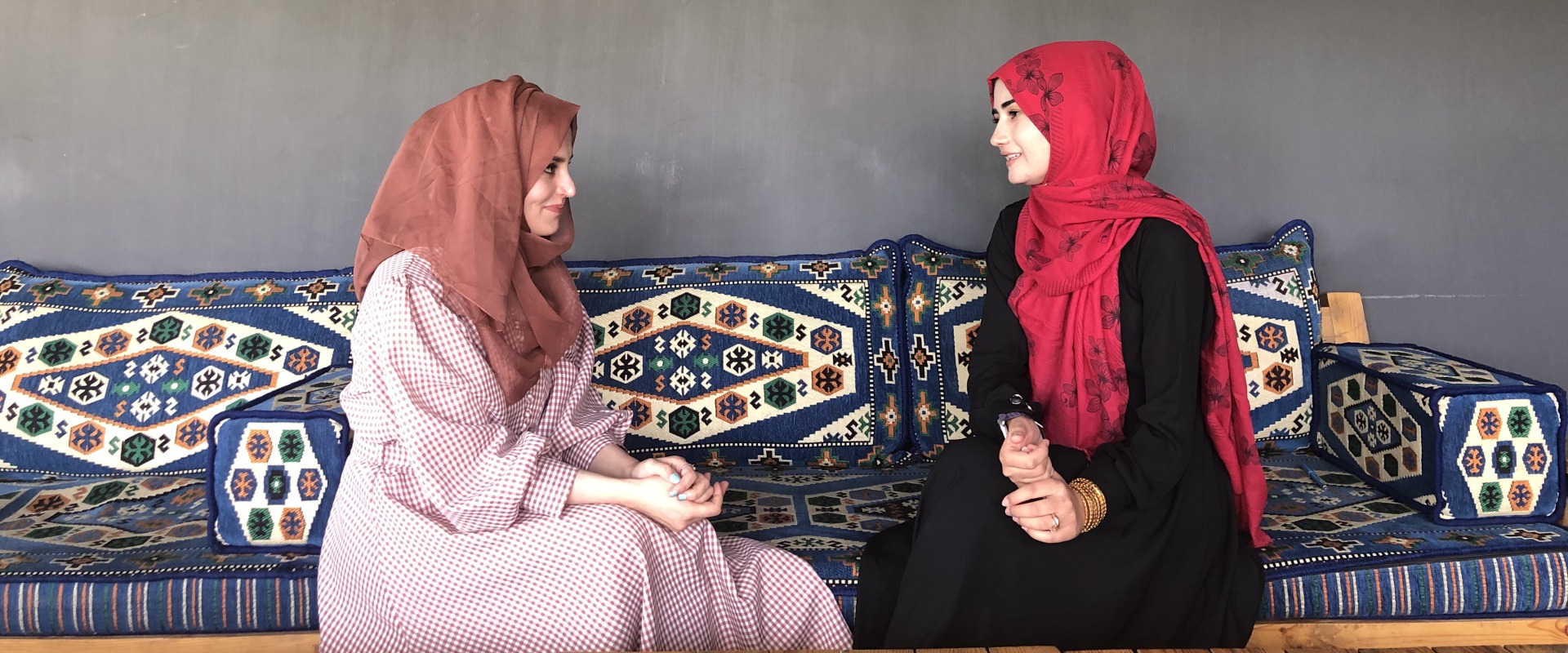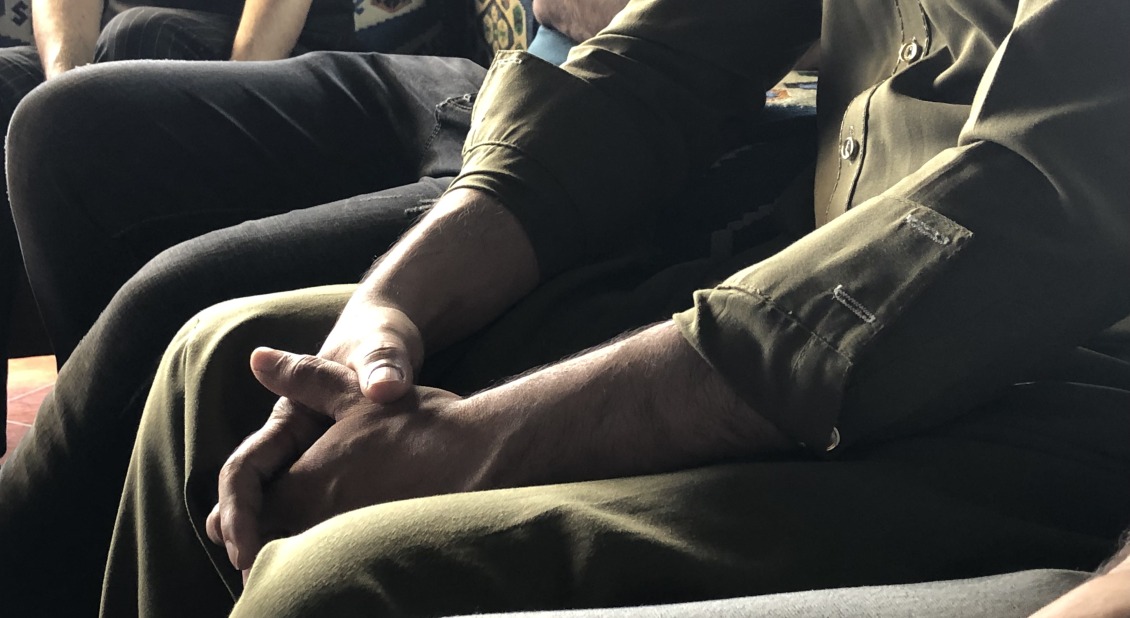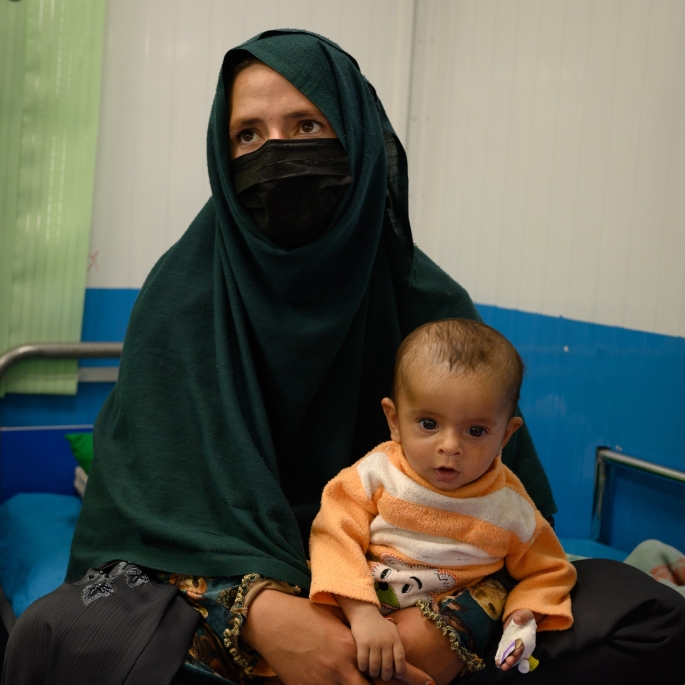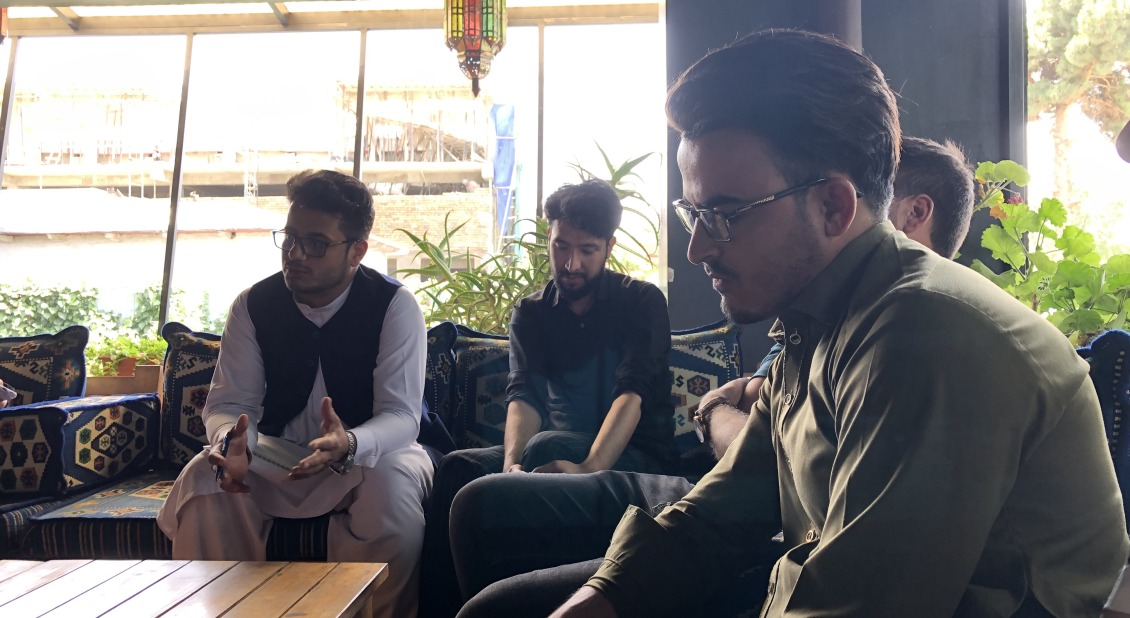
GIVE THIS RAMADAN

The consequences of war are not always easy to see. In places like Afghanistan, where decades of armed conflict have left many injured, displaced, and hungry, many are facing an unprecedented but unseen mental health crisis.
Unlike physical injuries, stress, anxiety, and depression are not visible to the outside eye. Recent years have been especially challenging for Afghan families, who have faced political upheaval and economic hardship. People are desperate for support but are unable to access the resources they need. Stigmas around mental health have made it especially difficult for Afghans, and stereotypes prevent many from seeking treatment.
Research from the World Health Organization in 2018 found two million Afghans struggling with mental distress, and these numbers are likely much higher today. Still, many suffer in silence. The mental well-being of Afghans has become a pressing concern that demands immediate attention.
Afghanistan does not have enough qualified mental health professionals, such as psychiatrists, psychologists, and counsellors. Additionally, mental health services are concentrated in cities, so many rural communities are underserved. To address these challenges, Action Against Hunger established a mental health hotline, where treatment is provided entirely by phone.

The hotline service, funded by the UK’s Disasters Emergency Committee (DEC), employs 13 staff members: two receptionists and eleven psychologists. Since it launched in 2022, this unique team has provided mental health expertise during more than 2,060 sessions.
Many calls to the hotline come from remote provinces, such as Ghor, Daykundi, Nangarhar, and Badghis, where people have little access to mental health support. Other calls come from cities like Kabul, Herat, Balkh, and Kandahar.
The hotline is free and offers immediate support to individuals experiencing distress or psychological challenges. All of the hotline professionals are trained in psychosocial and psychological interventions, including emergencies like suicide prevention.

More than half of Afghanistan’s population is facing a food crisis. Our team is tackling malnutrition, mental health issues, natural disasters, climate shocks, and more. Last year alone, we reached over 265,000 people.
In areas where mental health is rarely talked about, hotline psychologists are among the few who are trusted with stories of trauma. Asef, a hotline psychologist with a background in clinical psychology, sees how mental health issues in Afghanistan are often stigmatized and misunderstood. Traditional cultural norms discourage people from discussing their personal struggles openly, which hinders them from seeking help.
“People facing mental health challenges may be isolated, making accessing appropriate support and treatment even more challenging,” Asef says. “That is why it is crucial that the hotline is open to everybody, men and women, and online counselling makes things much easier. People feel more comfortable sharing their hardship over the phone without seeing our faces.”
The anonymity of the hotline allows callers to share their thoughts and feelings without fear of judgement. Confidentiality is of the utmost importance, and callers are assured that their personal information will not be disclosed to anyone without their consent.
The hotline has established protocols for follow-up calls to check on the well-being of callers and ensure continuity of care. Follow-up sessions help prevent crisis situations and demonstrate a commitment to ongoing support. For people requiring more specialized support, the hotline offers referrals to local mental health professionals or clinics.

About 60% of the callers were women. The rise of gender-based violence, lack of access to healthcare, and barriers to education, employment, and equality mean that women often bear the brunt of Afghanistan’s mental health burden.
“Misconceptions surrounding mental health perpetuate the belief that psychological distress is a sign of weakness or moral failing,” says Tamana, hotline psychologist. “The hotline gives women a kind of freedom and a safe space where they are more open to sharing their problems and feelings.”
Many men are told from a young age that their mental health challenges are unimportant. In Afghanistan, these men are crushed by the country’s economic crisis, personal trauma, or the inability to feed their families. They feel broken and powerless. Financial instability can be a key contributing factor to mental health challenges, and it often leads to instances of violence and even domestic abuse.
“Most people who call the hotline encounter economic problems,” says Mina, an experienced psychologist. “A poor financial situation is the cause of most family problems and violence, especially when women are silenced and have no right to express their opinion. If we ask a man—how do you cope with anger? Often you will hear the answer—I beat my wife.”
Societal expectations and traditional gender norms often influence how men express and cope with anger. It is common to believe that expressing vulnerability or seeking mental health support is a sign of weakness. Men, when faced with adversity, often suppress anger or pain rather than seeking help.
“One day, I received a call from a man who was terrified and had no one to talk to. I learned that his brother was tortured to death, and he had to leave the village out of fear,” says Shahjahan, a hotline psychologist who has conducted more than 80 psychosocial sessions in only two months.
During the first session, Shahjahan found that the man had developed post-traumatic stress disorder, which often resulted in panic attacks. “The man suffered so much that he became intolerant to noises and panicked even at the sound of a hen,” adds Shahjahan. “He could not stand any noises, became violent, and started to beat his wife and children.”
After several sessions, the man achieved real progress and found tools to cope with his mental health challenges. Overcoming his fears was not easy, but there’s no longer violence at home. For Shahjahan, this is another small victory in his daily work.

Mental health counsellors are trained to listen with empathy and understanding. They validate the callers’ feelings and ensure they feel heard and supported. For teenagers, this validation is incredibly powerful, as it helps them realize that they are not alone in their struggles. Tamana remembers an especially challenging case of a young adolescent girl who faced bullying and sexual violence.
“Back home, she could not say anything to her parents or relatives and spent several days locked in her room,” says Tamana. The girl discovered that she was pregnant and found a way to trigger a miscarriage on her own.
“She lives in fear and silence and has been unable to return to normal life,” says Tamana. “She refuses all engagement proposals because she fears her story will be revealed. By reaching out for support, she took the first step towards healing and breaking free from the chains of silence. I hope one day she will regain her faith in herself and build her new life the way she wants.”
Treating complex cases like these is just another day for a hotline psychologist Tamana. Once, she received a call from a woman who stayed on the call crying for 15 minutes straight.
“I held the phone and was there for her until she could speak and share her grief,” she says. “This is part of our work, behind the scenes.
The mental health crisis in Afghanistan remains an urgent and overlooked crisis. In a country where mental health services are limited and stigmatized, a hotline is more than just a phone call for struggling individuals—it’s a lifeline.
Join our community of supporters passionate about ending world hunger.